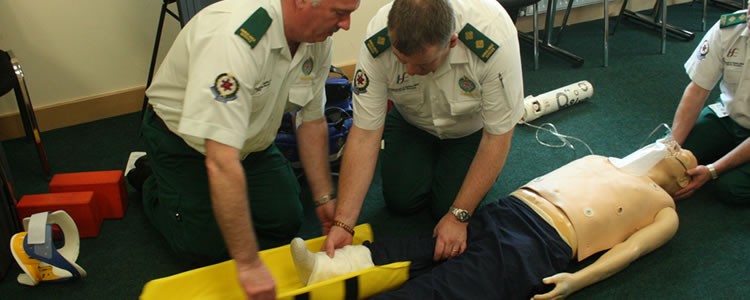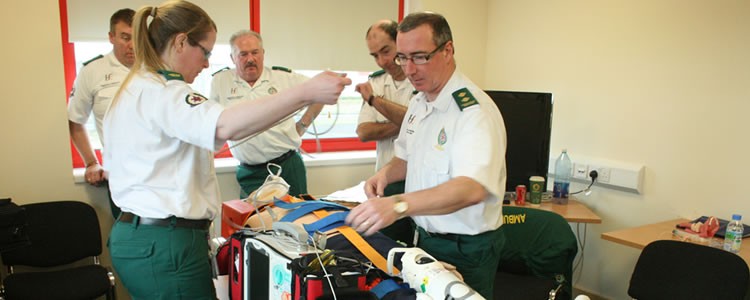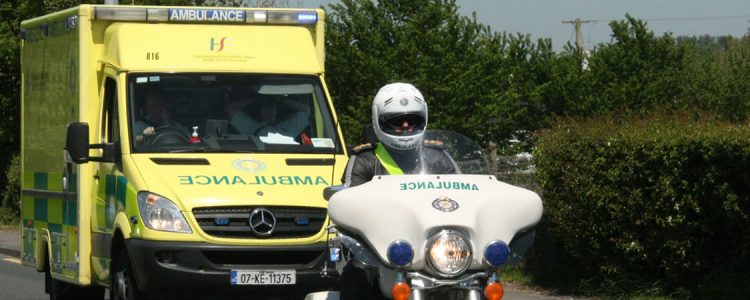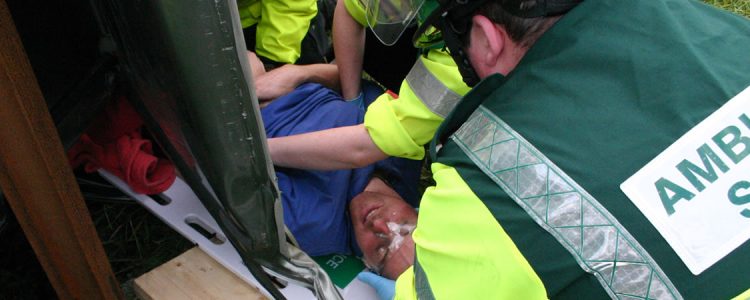So You want to become a paramedic?
Many people see ambulances whizzing by with blue lights flashing and sirens blazing and wonder what emergency they are on route to? I hope everyone is OK? I hope it’s not someone I know?
For more of us there are the questions such as; what training do these ambulance personnel undergo? How long does the training take? How much money would I be earning? How difficult a career is it to get into? In a nutshell…How can I become a paramedic?
To present day the National Ambulance Service (NAS) under the Health Service Executive (HSE), have used www.publicjobs.ie , the leading recruiter for public service jobs in Ireland, to advertise and recruit for position openings within the service. Formerly these positions would have also been published on national newspapers, however, with the increased use of internet, notification availability from www.publicjobs.ie , and the way information spreads like wildfire on social media, the notice for recruitment of applicants is now held to public jobs alone.
So the application is open, what do I need to apply?
Education:
You need to possess a minimum of five passes in the Leaving Certificate Examination at Ordinary Level (or EU academic equivalent), including Mathematics and a Science subject.
However, if you do not meet the above criteria, don’t fret, as there are certain exemptions:
(a) Possess a Pre-Hospital Emergency Care Council (PHECC) EMT Certificate in lieu of a Science Subject in the Leaving Certificate (or EU academic equivalent).
(b) Possess a Primary Degree from a recognised third level institution in lieu of a Leaving Certificate (or EU academic equivalent).
Driving License Requirements
Applicants must hold a full B and C1 category license prior to closing date for applications. A requirement for a full D1 license is also applicable, though has not been required prior to closing date of application, however, must be attained within 1 year of commencement of contract or within one year following applicant’s 21st birthday.
See http://www.rsa.ie/Documents/Learner%20Drivers/Third%20Directive/categories.pdf for explanation of categories
I have my license, where do I go from here?
Following submission of completed application form (available from www.publicjobs.ie ) you will be invited to sit a session of aptitude tests at Public Jobs’ premises on Abbey Street, Dublin 1. The aptitude tests required to be completed on the most recent recruitment selection were verbal reasoning and numerical reasoning. If you are not familiar with aptitude tests there are many websites, books and companies offering training on these to build up your confidence before sitting the ones that really matter.
Subsequent to the aptitude tests the applicant is given a temporary panel position, which will decide whether they are called to the interview stages or not.
The interview process includes talking about topics such as your background and relevant experience to the role, why you have applied for the job, discussing your application form and talk about times where you have worked as a team player, used problem solving and decision making, and where you have shown your ability to cope under pressure.
Your panel number may be readjusted as to your performance in the interview and this becomes the finalised panel to which you hope to be called from as courses are run.
So what about the college itself?
The NAS presently runs courses through their two Ambulance Training Colleges, in Phoenix Park, Dublin, and Ballinasloe, Co. Galway.
These colleges have lecture halls, training rooms and state of the art equipment to offer along with functioning ambulances which would be your ‘office’ should you succeed in completing the course. More than the rooms and equipment on offer, your tutors will not only be highly educated and qualified officers of the NAS, but will have years of on the road experience to back up their knowledge and skills.
The NAS, however, are in the process of opening a new training college in a purpose built centre in Tallaght, Dublin, which will also be home to the Command and Control Centre for the South West, the South, the South East, the East, the North East, and part of the Midland regions. This facility aims to be up and running in early 2015.
The academic awarding body for the paramedic programme is University College Dublin. (www.ucd.ie)
What does the course entail?
The course is two years in duration, involving classroom lectures, intense practical training, driving course, clinical and field placements, and a one year internship, and not to forget…exams!
Clinical placements are carried out in various departments of hospitals from Emergency Departments to Theatre; Care of the Elderly to Paediatric wards, while field placements are carried out initially as a 3rd person with a frontline paramedic/advanced paramedic crew, offering the student experience and exposure from all angles both in hospital and pre hospital.
Throughout the course case studies must be completed and submitted to UCD, as must the student paramedic complete anonymised call logs following ambulance calls attended by the student which are also to include learning points from the call
A three week advanced driving course must be completed and passed by the student where the student is instructed and assessed by independent assessors
The one year internship sees the student work as part of a two person crew, where again they will complete ambulance call logs, but also be subject to on the road assessments by NAS Staff, but most rewarding it is now their chance to work as a day to day paramedic on a frontline ambulance with a qualified, experienced, colleague.
The final, and one of the most crucial parts of the course is the Exit interview which determines whether or not the student is permitted to work on the road, beyond their internship, as a paramedic. This interview explores your knowledge, your experience, your call logs, attitude, and overall ability to be able to work on the road as a paramedic with in the NAS.
Who decides what a paramedic can and can’t do?
The other side of the exam requirements are put in place by the Pre Hospital Emergency Care Council (PHECC – www.phecc.ie) who are the clinical governing body for practitioners in Ireland. The student must sit and pass independent Multiple Choice Questions where the pass grade is 80% and also sit and pass Short Answer Questions to be eligible to practice and sit on the register of practitioners at the grade of Paramedic.
How much can I expect to earn?
The starting salary for a student paramedic presently stands at €25,447 for new employees of the HSE, however this is topped up by shift allowances and premium pays once applicable to your roster.
Did I hear that this is becoming a degree course?
Up to the most recent recruitment for student paramedics the above approach has been taken whereby the successful student will achieve a diploma in Emergency Medical Science.
This is all soon to change with the introduction of a 4 year, Bachelor of Science, Degree course in Paramedic Studies. The routes of entry will be through the Central Applications Office (CAO – www.cao.ie ) application and through mature student application to the Third Level University.
At present, University of Limerick are offering Graduate Entry to the course for experienced paramedics/advanced paramedics who can undertake a one and a half year, part time programme, which will allow the prospective student to graduate with a BSc Degree in Paramedic Sciences.
Although the successful graduate will hold a degree in Paramedic Sciences, they must still sit on the PHECC register and adhere to the Clinical Practice Guidelines (CPGs) laid out by PHECC for Paramedic level.
It is looking like the universities offering the course will be University of Limerick, University College Cork and University College Dublin, though keep an eye on their websites and the CAO site for updated info!
For further information on the graduate course, or to get an idea of what the degree course will entail please visit www.ul.ie/gems/para
I’m still confused…I have more questions?
Should you have further questions on a career as a paramedic within the NAS please feel free to drop us an email and we will get back to you as soon as possible.







